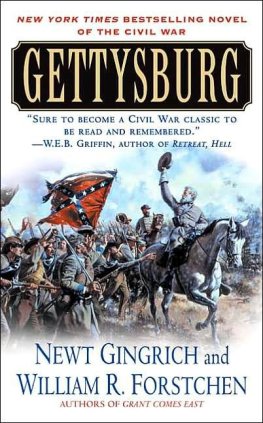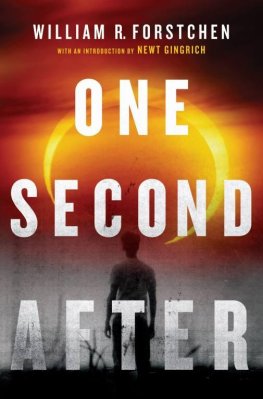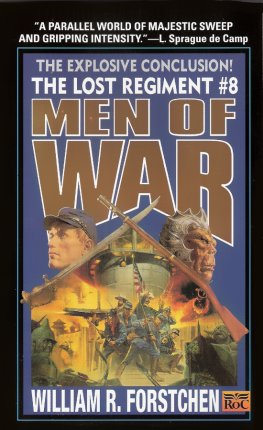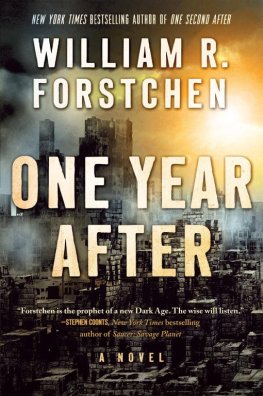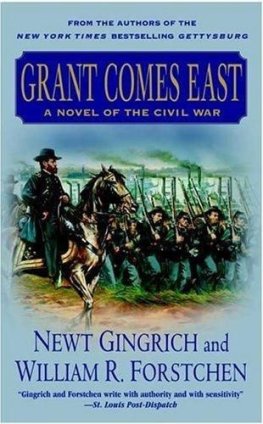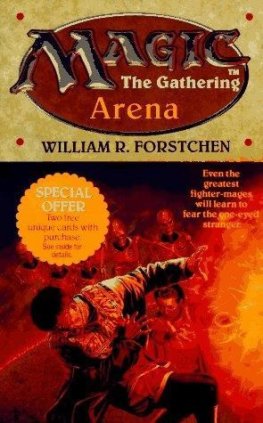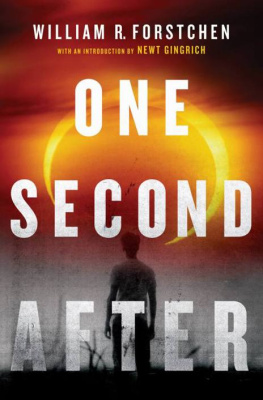William Forstchen - Gettysburg
Here you can read online William Forstchen - Gettysburg full text of the book (entire story) in english for free. Download pdf and epub, get meaning, cover and reviews about this ebook. genre: Science fiction. Description of the work, (preface) as well as reviews are available. Best literature library LitArk.com created for fans of good reading and offers a wide selection of genres:
Romance novel
Science fiction
Adventure
Detective
Science
History
Home and family
Prose
Art
Politics
Computer
Non-fiction
Religion
Business
Children
Humor
Choose a favorite category and find really read worthwhile books. Enjoy immersion in the world of imagination, feel the emotions of the characters or learn something new for yourself, make an fascinating discovery.
- Book:Gettysburg
- Author:
- Genre:
- Rating:3 / 5
- Favourites:Add to favourites
- Your mark:
- 60
- 1
- 2
- 3
- 4
- 5
Gettysburg: summary, description and annotation
We offer to read an annotation, description, summary or preface (depends on what the author of the book "Gettysburg" wrote himself). If you haven't found the necessary information about the book — write in the comments, we will try to find it.
Gettysburg — read online for free the complete book (whole text) full work
Below is the text of the book, divided by pages. System saving the place of the last page read, allows you to conveniently read the book "Gettysburg" online for free, without having to search again every time where you left off. Put a bookmark, and you can go to the page where you finished reading at any time.
Font size:
Interval:
Bookmark:
NEWT GINGRICH
Gettysburg
WILLIAM R. FORSTCHEN
Chapter One
The shadows of twilight deepened across the orchards and wheat fields of the Cumberland Valley. The day had been hot, the air heavy with damp heat; now the first stirring of a cooling breeze came down from out of the hills. Fireflies danced through the branches of apple, peach, and cherry trees; crickets sang; and as he rode through the rows of the orchard he breathed the rich evening air of summer, feeling a moment of peace.
He looked up at the moon riding in the eastern sky, nearly full, glowing with an orange warmth, the cold light of the stars beginning to fill the heavens.
As he approached the knoll, the orchard gave way to pasture, the fence dividing the two fields broken down, the split rails so laboriously cut and laid in place gone, except for a few upright posts. He had spoken more than once about this, to not touch the property of these people, but after a hard day's march such fences were easy to burn, and the pasture ahead was dotted with glowing fires. An entire winter of a farmer's labor to fence this field gone now in a single night.
He reined in, not wanting to venture closer to where the troops were camped. Shadows moved about the flickering lights, the scent of wood smoke drifting on the cool breeze mingled with all the other scents of the army horses, men, food cooking, grease, sweat-soaked wool uniforms, oiled leather, latrines, the heavy mix both repugnant and comforting, the smells that had been his life for over thirty years.
Songs floated on the wind. A boy, Irish from the sound of him, was singing "He's Gone Away." He listened for a moment, feeling a cool shiver. " But he's coming back, if he goes ten thousand miles."
The boy finished. The song had struck a nerve. More than one of the men coughed to hide the tears; there was a forced laugh, then another song; it sounded like "The Girl I Left Behind Me," but the lyrics were not familiar. He suddenly caught one of the stanzas. It was not the traditional song; it was one of the new verses that soldiers always enjoyed making up.
He listened for a moment, and in the shadows he allowed himself to smile. It wasn't as obscene as some and no worse than some of the songs he had sung when a cadet at the Point so many years ago.
He thought of Thomas Jackson. Thomas would have ridden straight into the camp and scattered them, then delivered a stern sermon about such sinful practices, urging the men to pray instead.
Thomas, how I miss you.
The voices around the nearest campfire stilled. Some of the men turned, were looking his way; he heard the whispers.
"Marse Robert It's him, I tell you. It's General Lee."
He caught a glimpse of an officer stepping away from the fire, coming toward him.
No. Not now.
He lifted his reins; just the slightest nudge and Traveler turned, breaking into a slow canter, and he rode into the shadows. Tracing the edge of the pasture, he followed the broken line of the fence for another fifty yards, the ground rising ahead, climbing to a woodlot At a corner of the field was a towering oak, gnarled, ancient, a remnant of the great forest that had once covered this land, spared by a farmer long ago, perhaps as a reminder of what the land had once been.
No one was about, and he stopped beneath its vast, spreading branches. Atop the knoll the Cumberland Valley spread out before him, a vast arc of farmsteads, villages, and his army, the Army of Northern Virginia. Ten thousand campfires glowed, spreading up and down the length of the valley, great blazing circles of light Where the more restless had gathered, there was singing and laughing.
He remembered the night before the Battle of Sharpsburg last fall, the way the Union campfires had glowed on the far side of Antietam Creek and the surrounding hills. As he'd ridden to inspect their lines, he had commented to Jackson on the vastness of the Union host descending upon them.
"Won't be as many of their fires tomorrow night," Thomas had replied coldly.
"Thomas is dead." He whispered the words softly, a simple statement of fact that carried so much weight, perhaps the very outcome of the war.
You have lost your left arm, but I have lost my right. That is what he had sent as a message upon hearing of Jackson's wounding last month at Chancellorsville. And then he had died. How I miss that right arm tonight, he thought sadly. If Jackson were here, I would know without a moment's doubt how to react. But all had changed now.
Where was the Union's Army of the Potomac camped tonight? This morning he had thought they were a hundred miles off, still down in northern Virginia and around Washington. An hour ago he had learned the truth.
The Dutchman, his trusted commander of First Corps, Gen. James "Pete" Longstreet, had come to him with a spy. He had never liked spies, though they were as much a part of war as any soldier and at times far more important than having an extra division on the field. The spy was an actor Pete had hired on his own.
That in itself said something, that his second in command had spent a fair sum of money to send an actor across the fields, villages, and towns of Maryland and Pennsylvania in search of the Army of the Potomac. That was a job Jeb Stuart and his cavalry were supposed to perform, not someone who strutted upon the stage.
The Army of the Potomac was coming north. It was not in Washington; it was coming north and moving fast. By tomorrow night its campfires would be lit not thirty miles from here.
Stuart had failed him. Reports should have been flooding in, detailing the movement of every division in the Union army. There had not been a single word. For that matter he couldn't even tell for sure where Stuart was at this moment
There was the other side of the coin as well. If Stuart had failed to report in, he had most likely failed as well in his other task of screening the movement of this army. He had to assume that the Army of the Potomac might indeed know where he was, how his forces were spread out all the way from the Maryland border to Harrisburg and just how vulnerable he was.
I should have known three days back that those people were on the march and following, he thought bitterly. Not tonight, not like this, from a spy slipping through the lines to whisper his report, declaiming his lines as if I were part of a breathless audience hanging on every word.
The anger began to flare. "Damn!"
He knew that if those who followed him had heard that single word it would have sent a shock through the entire army. "The Old Man was so angry he swore," they'd whisper. Staff would have stood stock-still in stunned silence; generals noted for their command of Anglo-Saxon would have been rooted in place.
They make me too much a statue of marble, he thought. I have already become a legend to them. Legends can create victory. Convince your men that they can win, convince the enemy they cannot win, and the battle is half decided before the first shot is fired.
He dismounted, loosely holding Traveler's reins so that his old companion lowered his head to crop the rich clover of the pasture. He sat down under the oak tree, a mild groan escaping him as he settled back, resting his head against the rough bark, and he let the reins go.
They're coming North. That means a fight soon, maybe as early as two days from now, definitely within a week. It is, after all, what I wanted, but not quite yet. And not here, not on the Union army's terms.
A shower of sparks swirled up from the nearest campfire as another rail was tossed onto the flames, another song started, "Lorena."
He listened, humming absently.
"The years creep slowly by, Lorena,
Font size:
Interval:
Bookmark:
Similar books «Gettysburg»
Look at similar books to Gettysburg. We have selected literature similar in name and meaning in the hope of providing readers with more options to find new, interesting, not yet read works.
Discussion, reviews of the book Gettysburg and just readers' own opinions. Leave your comments, write what you think about the work, its meaning or the main characters. Specify what exactly you liked and what you didn't like, and why you think so.

